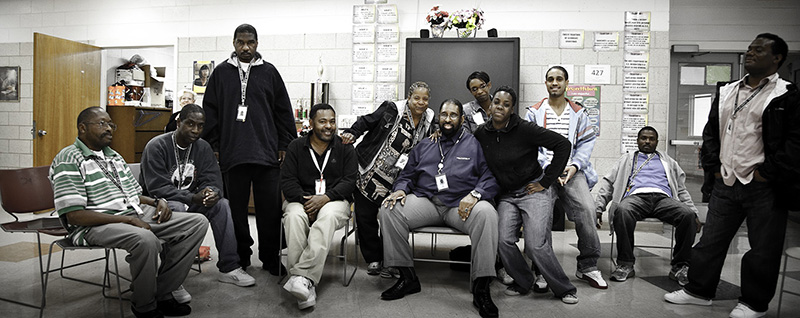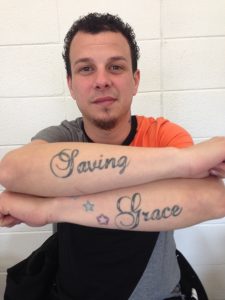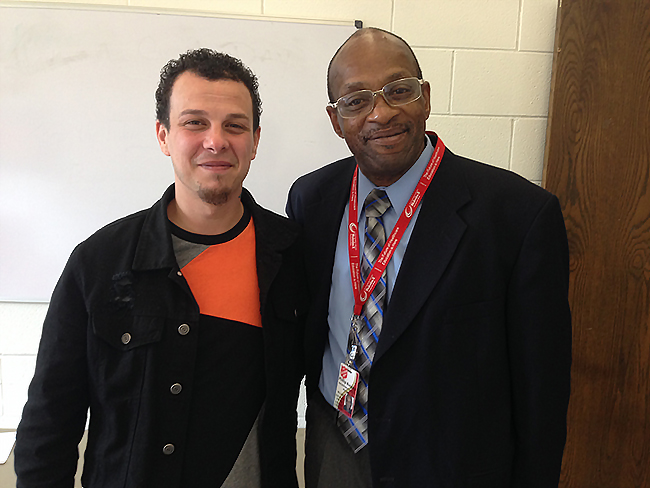Structure and Hard Work Saved Client’s Life

Roy Ballesteros has lived more years than his age would suggest. After nearly 15 years of heavy drug use and criminal activity, proudly announces he has almost four years of sobriety. “This is who I am now. I can’t imagine not being sober,” he said.
But it wasn’t always that way. At 14 years old, Ballesteros started experimenting with marijuana and alcohol. At 16, while still abusing drugs, he was arrested for forgery and sentenced as a juvenile. But while serving probation for that charge, he was arrested for forgery and burglary – crimes he committed to support his growing addiction to methamphetamines and Adderall.
He was first introduced to this drug cocktail while living and partying in Boys Town, Chicago’s neighborhood that draws many members of the LGBTQ community. “The high from those two drugs is unlike anything other – its stays in the system and keeps you higher, longer,” Ballesteros said. “It helped me deal – or not deal – with issues I had growing up.”
He found himself sentenced as an adult and sent to prison. His relationship with his mother was strained at best. He was lost.

 Multiple early releases and probation violations kept Ballesteros in and out of jail, and he eventually ended up at a halfway house on Chicago’s South Side. He continued to use. “At my lowest point, I was so high I started to tell people my mother was dead when she wasn’t,” Ballesteros said. “When I walked into The Salvation Army, I was ready to die. I wanted to die.”
Multiple early releases and probation violations kept Ballesteros in and out of jail, and he eventually ended up at a halfway house on Chicago’s South Side. He continued to use. “At my lowest point, I was so high I started to tell people my mother was dead when she wasn’t,” Ballesteros said. “When I walked into The Salvation Army, I was ready to die. I wanted to die.”
Ballesteros turned to The Salvation Army’s Adult Rehabilitation Center (ARC) for help, on the recommendation of a co-worker. The Salvation Army welcomed him with open arms and a commitment to helping him recover from his addiction. The ARC provides a minimum of six months of substance abuse treatment and work therapy. Clients work approximately 40 hours every week in The Salvation Army’s popular Family Thrift Stores – from which proceeds go right back to support the ARC’s programs.
“If I hadn’t landed here with Majors John and Julie Aren, with the structure and the tight schedule, I don’t know what would have happened to me,” Ballesteros said. “I’m utterly grateful.” Clients who have successfully completed treatment and maintained sobriety – especially those who have attempted sobriety many times – have said the six months of treatment and the work schedule gave them time to properly address their addictions and the issues that led them to use in the first place.

Now Ballesteros works in the program department at the ARC, where he shares his story of sobriety regularly – and talks often with his mother, Martha, who is his biggest fan. “I’m so proud of him because he went in for treatment and realized he would only be successful if he did it for himself,” she said. Looking ahead, Ballesteros would like to work with other addicts seeking treatment and help through The Salvation Army. “They welcomed me, and now I’d like to be there for others.”
The Salvation Army also has a women’s Adult Rehabilitation Center addressing issues specific to women battling addiction. The building was recently renovated to provide a space for transgendered women to live while they complete treatment.
If you or someone you love need help with battling addiction, you can call our Adult Rehabilitation Centers.
Men: 312.738.4367 / Women: 773.477.1771.
You can help others make a change by making a gift that supports The Salvation Army programs or donating to our thrift stores.
